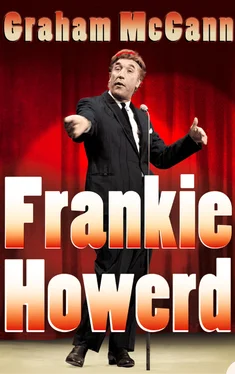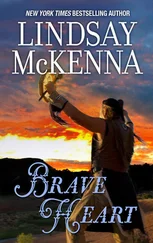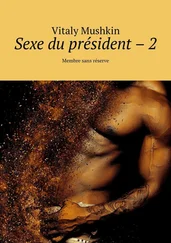As a fledgling playwright, on the other hand, the great amount of faith he invested in his own ability struck most of those whose opinions mattered as gravely misplaced. An audacious attempt to squeeze a rambling one-hour play, entitled Lord Hallidayâs Birthday Party , into a tight ten-minute slot in a forthcoming concert was thwarted by the schoolâs headmaster, the rather dour Rupert Affleck, who deemed the script (which featured a messy divorce, a brutal murder and several other striking themes lifted straight from some of the movies Frank had recently seen) âfar too outrageous and bold to be performed by young boysâ, adding (according to Howerdâs own rueful recollection) that he was âappalled that a fifteen-year-old could be so depraved as to write such filthâ. 3
Embarrassed but undeterred, Frank proceeded to write several more scripts that Mr Affleck, had he seen them, would no doubt have considered to have been of far too sensational a nature. When, however, a play that he did manage to get performed â his blatantly derivative murder-mystery, Sweet Fanny Adams â elicited nothing more audible (let alone encouraging) from the auditorium than the lonely sound of tumbleweed being blown through the desert, he resolved in future to keep the rest of his âmasterpiecesâ to himself. 4 Always a populist, Frank reasoned that if the current market demand was restricted to his acting, then his acting, for the time being, would have to be the sole commodity that he would seek to deliver.
In 1933, at the age of sixteen, he began attending an evening class in acting offered by what in those days was called the London County Council (or LCC). It was there that he first encountered his next great mentor: Mary Hope.
Hope â an experienced stage actor herself â became one of Howardâs tutors, and, just like Winifred Young before her, she soon found herself intrigued by the young performerâs quirky appeal. First, she encouraged him to join the LCC Dramatic Society â a vastly more serious and rigorous kind of company than either of Howardâs previous two theatrical troupes â and then, after seeing how richly original was his potential (and also how open he was to instruction), she advised him to aim his sights on securing a scholarship at RADA (the Royal Academy of Dramatic Art). If he was interested, she added, she would be willing to work alongside him as his coach.
Howard, his eyebrows hovering high and his bottom lip hanging low, was, as he would later put it, âa- mazed â. Listening back to the phrase as it echoed around inside his head â â Was I interested? â â the only word that sounded out of place was the âwasâ. He was almost too thrilled to speak: âChoked with emotion, I managed to stammer that it was the most exciting prospect imaginable.â 5
Before he could commit himself with a clear conscience, however, he knew that he would have to find a way to win his motherâs blessing. This did not seem likely to be easy. Edith, after all, had set her heart on seeing her son acquire a good education and then pursue a suitably upright and worthy religious career; now he was set to dash both of these treasured hopes at a stroke. Frankâs great sense of guilt grew even worse when he reflected upon the many sacrifices that had been (and still were being) made, not just by his mother but also by everyone else in his family, so that he could see through his education at Shooters Hill.
The loss of the ailing Frank Snrâs Army salary, occurring as it did right at the time when the country was deep in the depths of the Great Depression, had forced Edith to find work as a cleaner in order to help pay the mounting pile of bills. A further, and far more painful, consequence of the familyâs shrunken income was the fact that it had made it impractical for either Sidney or Betty to match the length (or the quality) of their elder brotherâs education: both, it had become clear, would have to leave school as soon as they reached the then minimum age of fourteen (Sidney, as things turned out, for a career in the Post Office, 6 and Betty for a job in an office 7 ). Everyone, it seemed, had suffered for the benefit of young Frank, and now young Frank was ready to risk it all on RADA.
âChildren are inclined to take a tremendous amount for granted,â the adult Frankie Howerd would come to reflect, âand for my part I never fully appreciated [â¦] the degree of the hardship involved in keeping me at Shooters Hill.â 8 The teenaged Frank Howard, however, in spite of his youthful self-absorption, knew enough to know how great a blow the news of his apparent recklessness would be, and how easily his sudden change of plan could be taken as a betrayal. He hated telling them, but he had to.
When he did, he could not have been more pleasantly surprised by his motherâs outwardly calm and remarkably compassionate reaction. Instead of initiating a bitter debate or administering a furious rebuke, she just sighed, smiled resignedly, and said: âThat sounds like a nice idea.â 9 Frankâs relief and gratitude were immense: if his redoubtable mother was still on his side, then she would ensure that the entire family remained on his side. âI think she was disappointed that I wasnât going to enter the Church, after all,â he would recall, âbut since her primary concern was for my happiness, she gave me all the support she could.â 10
He returned, suitably emboldened, to his coach Mary Hope, and started working hard â âharder than Iâd worked for anything in my lifeâ 11 â in preparation for his forthcoming RADA exam. There were three set pieces to master: one a short speech from a contemporary play, and two soliloquies from Shakespeare. With the momentous event only a matter of months away, the schedule was unrelenting: day after day, week after week, the context of each discrete piece was studied, the character of each speaker explored and the rhythms of each line assessed. Hope also worked with Howard on keeping his nerve, controlling his stammer and coping in general with the unfamiliar experience of being up there on show all alone. Rehearsal followed rehearsal, critique followed critique, until both of them were happy that they had secured a strong start, a solid centre and a suitably big finish. When the time finally came, Frank Howard felt sure that he was ready.
The big day started cold and grey. Rising from his bed early, having barely slept throughout what had felt like an impossibly long night, Frank washed, fussed over his fine curly hair, and then put on his best, barely worn, brown suit â which hung limply off his tall, skinny frame like a large sack would have done from a stick. Studying the effect in the mirror, he thought that he looked rather good. There was just time to go downstairs for a quick cup of tea in the kitchen and some welcome words of encouragement from his mother, and then he was up, out and off to meet his fate.
Clutching the packet of cheese sandwiches that his mother had made for his lunch, he caught the train from Eltham to Holborn Viaduct, and then, with a growing sense of trepidation, walked slowly through Bloomsbury, with all of the lines from the three speeches rattling around inside his head, until he arrived outside the entrance to the grand-looking RADA building at 62 Gower Street. What happened next was an experience that Frank Howard would never, ever, forget.
Shuffling inside, he found himself at the back of a vast room that appeared to be almost full of his fellow-applicants. It only took one quick glance over at them â smart, smug, matinée idol types â and one furtive glance back at himself â suddenly revealed as a scruffy, shambling, âsweating oafâ 12 â for all of the old demons to come crashing back. The others looked as if they belonged; he felt that he did not. As he stood there, rooted helplessly to the spot, he held on tightly to his packet of sandwiches (âI had to cling to something â), and felt sure that he could hear more than a few mocking laughs. 13 He knew what he had to do, but at that singularly vital moment, in spite of all of those months of lessons and learning and desperately hard work, he knew that he had lost all faith in his ability to do it.
Читать дальше












